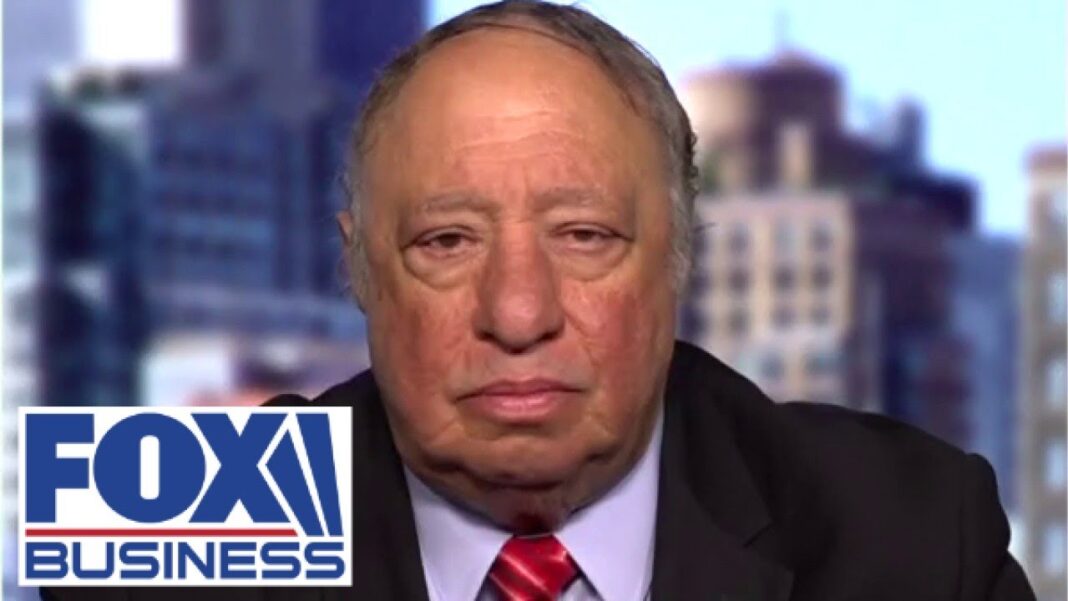KEY TAKEAWAYS
- ESG-guided entities push for left-wing priorities, such as “civil rights audits”—code for more focus on racial equity—even if that isn’t good for the bottom line.
- Activists in and out of government deliberately create these costs to make it less attractive for companies to refuse to adopt ESG priorities.
- Activist litigants, state attorneys general, and bureaucrats are driving up the costs of not playing woke ball.
When the left tries to impose its policy visions on others, often the only winning move is not to play its game.
But when it comes to “ESG,” bureaucrats and billionaires have figured out how to force the rest of us to play along.
ESG, which stands for environmental, social, and governance, is a nebulous phrase that means, in effect, that a company is guided not merely by the goal of serving the public through offering goods and services its customers need, but by left-wing social causes, too.
Investment firms that are guided by ESG will, for example, refuse to invest in or do business with the fossil fuel sector even if doing so would benefit their shareholders or investors. Other ESG-guided entities push for left-wing priorities, such as “civil rights audits”—code for more focus on racial equity—even if that isn’t good for the bottom line.
Some companies will voluntarily adopt ESG in their corporate guidelines and disclosures. Others remain committed to serving the public through offering goods and services at a fair price and aren’t interested in virtue signaling.
But to woke activists and government officials, opting out of ESG is not an option. So, they force noncompliant businesses to conform to ESG by artificially creating real costs for not doing so.
They do this through litigation. They will sue companies—often with dubious or plainly meritless cases—just to create litigation risk and costs. Even if the claims are meritless, businesses face real costs measured in lawyers’ fees, litigation costs, and the risk—however small—of a monetary judgment.
As companies plan, they must consider such costs.
Activists in and out of government deliberately create these costs to make it less attractive for companies to refuse to adopt ESG priorities.
Take the case of Oracle, which was sued by investors because the company allegedly “breached its fiduciary duty by failing to have meaningful diversity on its board and workforce.” The case involved Oracle’s supposed misrepresentation of its diversity measures in public statements.
Although the case was dismissed, it cost Oracle a lot of time, effort, and money to defend against it. And that was just one case. Other companies are hit with similar lawsuits all the time.
The Oracle case illustrates a pattern in ESG litigation. Shareholders use corporate statements—in this case, that Oracle was “actively seeking women and minority candidates” for the board—and then sue the companies under the theory that the company’s failure to realize liberal policy goals renders the statements false.
Activist shareholders create a lot of these ESG litigation costs, but the federal government has even more power to do so, and it uses it.
Recently proposed Securities and Exchange Commission disclosure rules for investors who take ESG into account are a good example. The more companies are forced to issue disclosure statements paying tribute to woke pieties, the more ammunition activist shareholders will have to sue them. And the more disclosure statements companies are forced to make, the more likely it is that the SEC will also sue them for failing to live up to its increasingly liberal expectations.
Consider, too, the SEC’s 2022 examination priorities. According to those, when ESG-motivated investment funds vote their shares in the companies they invest in, the SEC will monitor whether those votes “align with their ESG-related disclosures.”
Given how vague those disclosures often are, that gives the SEC a lot of leeway to interpret them according to left-wing policy goals.
The SEC recently extracted a fine from Bank of New York Mellon after deciding that the bank made “misleading claims” about how it uses ESG criteria to pick stocks.
The fine was small for the bank—$1.5 million—but it likely followed a time-consuming and expensive internal investigation and blackened the bank’s name among investors.
Going forward, the bank will try to avoid reincurring those costs, but that will be hard if the SEC is interpreting and enforcing vague terms. The best move for regulated entities is to recite all the right liberal pieties and play as hard left as possible in the hope that the SEC will think of them as an ideological ally instead of a target.
In 2020, litigation cost companies $22.8 billion, which is comparable to Iceland’s entire gross domestic product. Businesses naturally, and quite rightly, try to minimize those costs. In the ESG space, the only way to do that is to further commit to and pursue ESG priorities.
Some companies, however, are just doomed. These are businesses such as fossil fuel companies that are simply never going to be popular with the activist left no matter how fervently the former endorse left-wing cultural values.
ESG activists in and out of government have not only sued those companies with dubious claims to drive up their costs, they have also tried to cut off their capital.
Trillions of dollars invested in publicly traded companies (which include fossil fuel companies such as BP, Chevron, and Shell) come from pension funds. The trustees of those funds have fiduciary obligations that require them to invest with the goal of maximizing returns for the millions of middle- and lower-income Americans who depend on them for retirement.
They generally cannot pursue “collateral” ESG priorities. That means that they cannot avoid oil companies just because they don’t like them.
They can, however, pursue a “risk-adjusted return” form of ESG investing, where they avoid companies that face litigation risk because that risk might lower the return on investment.
See where this is going?
Activist shareholders, state and local governments, and federal regulators all manufacture litigation risk to impose costs on companies that don’t align with the ESG agenda.
Investment funds can use this litigation risk—no matter how frivolous—as justification to cut off capital from disfavored companies.
Democrats in Congress, too, are trying to help the ESG racket. The House of Representatives last June passed H.R. 1187, which would have required that public companies disclose information about ESG “performance metrics” and would allow the SEC to define that term.
The creation of ESG performance metrics would mean that these often-frivolous lawsuits would be more viable because the companies’ statements would be concrete rather than vague and aspirational, as Oracle’s was.
What we’ve seen is a cycle of left-wing activism that has effectively turned the major players in the country’s economy toward liberal priorities. Many companies play along because they share those values. But even companies that aim to maximize value are now playing along because they have no choice.
Activist litigants, state attorneys general, and bureaucrats are driving up the costs of not playing woke ball.
Things are likely to get worse before they get better because this reinforcing cycle is getting more sophisticated. Additionally, the federal regulatory apparatus will be in woke hands for at least two more years, and they will make the most of that time.
Congress and the courts ought to make clear that the SEC has no authority to enforce these sorts of vague rules.
State regulators ought to make sure that pension funds in their state aren’t violating their fiduciary duties by playing the ESG game. And for states that don’t already require their pension funds to maximize investor returns, they ought to pass model legislation doing that as quickly as possible.
When it’s no longer possible to refuse to play the left’s game, it’s time for powers bigger than woke corporations to shut the game down.
By GianCarlo Canaparo and Louis Pham







